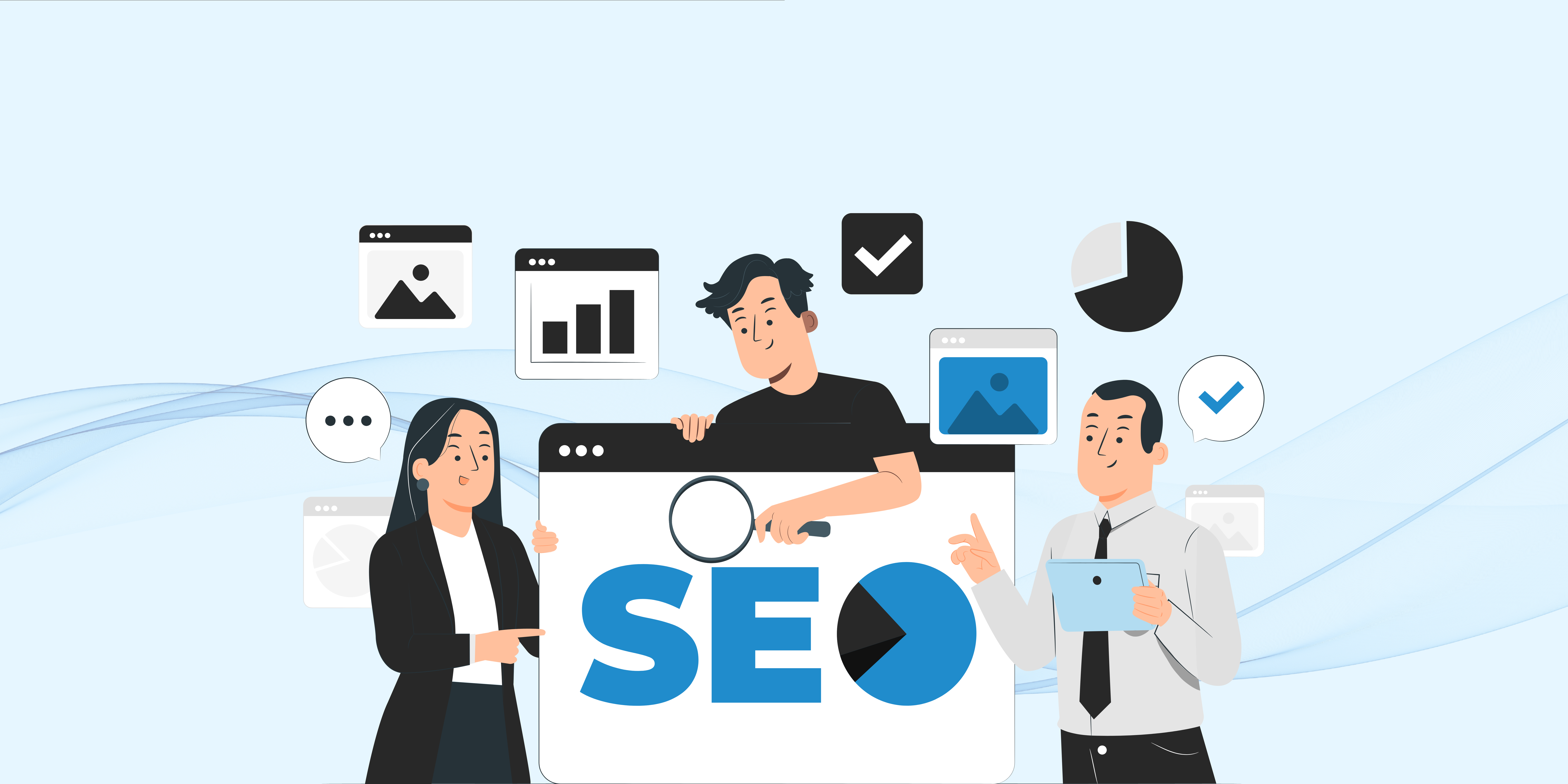It’s not a typo, and no, you can’t eat it either.
If you thought E-A-T was already a mouthful, say hello to its awkward but smarter cousin: E-E-A-T.
That’s right. Google took its original E-A-T concept (Expertise, Authoritativeness, and Trustworthiness) and added a second “E” for Experience. Because apparently, Google thought the acronym didn’t have enough letters yet.
So now we’ve got E-E-A-T. Not to be confused with a typo. Or a stutter. Or a bad Scrabble move.
But what exactly is E-E-A-T? Why did Google tack on that extra E? Is this another overhyped SEO thing we’ll all forget about in a year? Or is it quietly reshaping the way content gets ranked?
Let’s break it down with data, nuance, and no fluff.
What Was E-A-T?
Before the second “E” showed up, E-A-T stood for:
- Expertise: Do you know what you’re talking about
- Authoritativeness: Do others think you know what you’re talking about
- Trustworthiness: Can users (and Google) trust you
E-A-T showed up in Google’s Search Quality Evaluator Guidelines back in 2014. And in case you’re wondering, no, this document isn’t a secret. It’s public. You can Google it right now. It’s a beast of a PDF, but if you ever need to cure your insomnia, it’s a great read.
Anyway, E-A-T was never a direct ranking factor. Google doesn’t score your blog like an Olympic judge giving “7.3 for Trustworthiness.” Instead, it’s a guideline for real humans — Search Quality Raters — who help Google understand what makes a page high quality.
It influences how Google engineers tweak the algorithm. Think of it as user feedback, just on a massive scale.
According to Ahrefs, it was back in August 2018 when the world started talking about E-A-T along with SEO.
So What’s That Extra “E” All About
In December 2022, Google added another E for Experience. Now we have:
- Experience
- Expertise
- Authoritativeness
- Trustworthiness
Let’s be honest, it’s a bit much. But the logic tracks.
Experience is about first-hand, real-world interaction with the subject. Not just knowing the theory. Not just citing someone else’s knowledge. Actually doing the thing.
In other words, it answers the question:
“Has this person actually used the product, been through the situation, or done the thing they’re writing about?”
Let’s say you’re reading a blog on how to survive your first ultramarathon. Who would you trust more?
- A generic listicle from a freelance content writer who’s never run farther than the fridge
- Or a slightly unhinged runner who documents their chafing, hallucinations, and hydration strategy in excruciating detail
That’s Experience. And it matters now more than ever.
Why Did Google Add Experience?
Because trust is broken online.
A 2025 survey by Edelman found that only 63% of people trust search engines. That number’s been sliding for years. Not exactly a confidence booster.
Meanwhile, AI-generated content is flooding the web. According to data from WriterAccess, nearly 35% of marketers reported using AI to scale content creation in 2023. And guess what? Most of that content is regurgitated, surface-level, and about as useful as a chocolate teapot.
Google needed a way to separate content that’s actually helpful from content that’s just technically correct.
So they doubled down on human perspective. Experience is their way of saying: “We want content from people who’ve actually been there and done that.”
Does E-E-A-T Actually Impact Rankings
Theory is nice. But let’s talk data. Is E-E-A-T measurable? Sort of. Here’s what we know:
1. Google Medic Update (2018)
Sites in Your Money or Your Life (YMYL) niches like health, finance, and safety got hit hard during the Medic update. Why? Because these topics need high E-A-T.
One SEO firm, Path Interactive, found that medical and health sites with content written by verified professionals performed far better after the update.
In other words, don’t let Karen from accounting write a blog post titled “10 Tips to Cure Diabetes Naturally.”
2. Semrush Ranking Correlation (2023)
Semrush’s study of over 24,000 keywords found that pages with clear author bios, credentials, and experience indicators consistently outranked similar content without those signals.
In short, users and algorithms both prefer to know who’s behind the content and why they’re qualified to write it.
3. Google’s Own Words
Let’s not forget this line from Google’s guidelines:
“Trust is the most important member of the E-E-A-T family because untrustworthy pages have low E-E-A-T no matter how Experienced, Expert, or Authoritative they may seem.”
Translation: You can be a Nobel Prize-winning author who ran 18 marathons while doing heart surgery on a plane, but if users don’t trust your site, your rankings are toast.
Why E-E-A-T Matters for SEO Even If It’s Not a Direct Ranking Factor
Let’s talk straight for a second. If you’re looking for a measurable, tidy E-E-A-T score in your SEO tools, you won’t find one. There’s no slider in Search Console that says “Congrats, your Trustworthiness is now 87 percent.”
E-E-A-T is not a line of code or a metadata tag. It’s a framework, not a formula. But that doesn’t mean you can shrug it off.
Google uses E-E-A-T to train its ranking systems to recognize what quality looks like. It shapes how the algorithm interprets content, especially in topics that impact people’s health, money, or safety.
So if you’re wondering why your technically perfect blog post still isn’t ranking even though it loads fast and your H1 are on point this is probably why. Google is looking beyond structure and keywords. It wants signals that real humans with real experience are behind the words.
1. Improves Crawl-to-Rank Efficiency
Google’s crawlers have one job: decide if your content is worth indexing and surfacing. But they don’t have time for guesswork.
If your page clearly signals that it was created by someone with real knowledge and experience, it’s easier for Google to decide, “Yes, this should be seen.”
Adding schema, linking to credentials, including author bios, and using content formats that show originality (like videos, walkthroughs, or before-and-after photos) can reduce how long it takes for your content to appear in search results.
Basically, don’t make Google do detective work. Make the value of your content immediately obvious, both for users and crawlers.
2. Reduces Bounce Rates
You know that moment when you land on a page and instantly regret clicking it? Google knows it too. If users land, scroll for 0.3 seconds, and bounce back to the SERP, that sends a loud signal that the page didn’t deliver.
E-E-A-T helps reduce that by giving users confidence that the page is credible and helpful. Content that demonstrates first-hand experience or professional authority encourages visitors to stick around, scroll deeper, and explore more.
This is especially true on sensitive topics like medical advice, legal issues, or financial planning. People don’t want fluff. They want answers they can trust and E-E-A-T gives them that sense of trust without needing to read the whole page.
3. Builds Long-Term Brand Equity
Think of E-E-A-T as a reputation builder for your domain. When you consistently create helpful, reliable, and expert-backed content, it starts to add up.
You might not see huge gains right away. But over time, Google starts treating your site as a trusted resource and users do too.
This can lead to more backlinks, better brand recall, more branded search queries (which Google does love), and increased return visits. In other words, you stop fighting for scraps with every new blog post because your past content is doing the heavy lifting.
4. Strengthens Topical Authority
If you publish content in a specific niche let’s say, nutrition or home repair — then Google starts to connect the dots. Especially when all that content is written by authors with experience in the field.
Over time, this builds your topical authority, meaning Google sees your site as a go-to resource for that subject. So when you publish something new in that area, it’s more likely to be crawled, indexed, and ranked quickly.
Topical authority doesn’t come from volume. It comes from consistency, relevance, and trust signals the core of E-E-A-T.
How To Improve Your Site’s E-E-A-T Without Losing Your Mind
Let’s be honest, a lot of advice around E-E-A-T sounds like it was written by robots for robots. Add more credibility. Showcase thought leadership. Ensure content authenticity. Cool… but what does that actually look like?
You don’t need to turn your blog into a peer-reviewed academic journal. You just need to show you’re a real human with real knowledge, real experiences, and a real reason to be writing about the topic. That alone puts you ahead of 80 percent of the internet.
So, before you panic and start rewriting every page on your site, try these practical ways to build E-E-A-T into your content without burning out or becoming a walking compliance checklist:
1. Add Real Author Bios
Your content needs a face. Or at least a name with a traceable footprint.
Use author bios to show who created each piece, what their background is, and why readers should trust them. Include links to credentials, social profiles, and relevant experience.
Don’t just say “Written by John.” Say:
“John Martinez is a licensed physical therapist with over a decade of experience treating sports injuries. He’s been featured in Runner’s World and spends his weekends coaching local marathoners.”
A clear, authentic bio builds immediate trust and sends a signal to Google that this content didn’t fall from the sky.
2. Show Experience
Generic tips are everywhere. Google’s drowning in them. Real-world examples cut through the noise and prove that you’re not just rewording someone else’s blog.
Especially in YMYL (Your Money or Your Life) niches, showing that you’ve actually done the thing you’re writing about makes a huge difference.
Include personal anecdotes, screenshots, original photos, and “what I wish I knew” reflections. Anything that proves you didn’t just summarize Reddit threads.
If you’re offering an SEO service, this is where case studies shine. Break down what you did, why you did it, and what happened after. Don’t just say “we helped them grow traffic.” Show the before, the after, and the messy in-between.
3. Use First-Person POV (When It Makes Sense)
You don’t have to write like a college essay. In fact, you probably shouldn’t.
Saying “I tried this strategy and it doubled my traffic” is more compelling than “Studies suggest this may improve results.” It makes your content relatable and credible, especially when paired with proof.
This works well for service businesses, niche bloggers, coaches, consultants, and even SaaS brands. Let your people sound like people. It’s not a weakness. It’s a trust signal.
4. Cite Real Sources
Back up claims with real studies, data, or industry quotes. Link to credible sources, not summaries of summaries.
It helps readers trust you and shows Google that you’re aligned with accurate, helpful information. Bonus points if you include data visuals or original research to stand out even more.
5. Encourage User Contributions
You don’t have to do it all yourself. User reviews, testimonials, guest comments, and community Q&As all build trust. Let your audience help shape your content and prove you’re not just another faceless brand.
When readers contribute, they feel invested. When new visitors see those contributions, it increases credibility. Google likes both.
Is E-E-A-T Worth the Effort
Yes. Because content quality absolutely matters, even when it’s hard to measure.
E-E-A-T isn’t a gimmick. It’s Google’s way of nudging the internet to be more helpful, more human, and less robotic.
So no, you don’t need to overhaul everything overnight. But if you want to rank well and stick around long term, give your content a human touch.
Tell real stories. Share real experiences. And write like someone who’s actually been there not like someone who Googled it five minutes ago.







